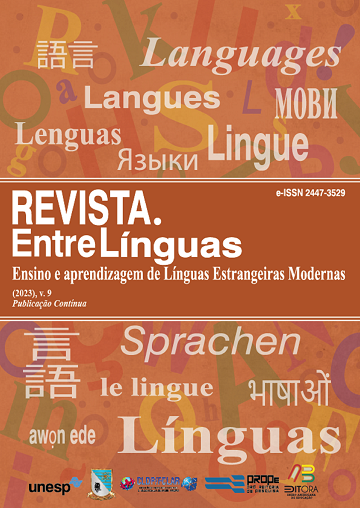Las dificultades del lenguaje para comprender el texto de un contrato y formas de superarlas
DOI:
https://doi.org/10.29051/el.v9i00.17850Resumen
En la circulación civil moderna, un número importante de contratos son los de adhesión. Tal como lo confirma la práctica judicial, la parte que se suma puede no comprender el contenido del contrato o tener una noción equivocada al respecto. El objetivo del artículo es investigar las razones y consecuencias de la falta de claridad del lenguaje en los términos del contrato para la parte que se adhiere al contrato, con el fin de determinar las formas de eliminarlos. En el artículo se utilizan el método empírico, los métodos de descripción e interpretación, y la teoría de la lógica formal y dialéctica. La razón para no comprender los términos de un contrato puede no ser la complejidad objetiva del texto, sino el hecho de que el contratista no lo lee. Se llega a la conclusión de que los medios jurídicos para proteger a la parte de un contrato que ha celebrado un contrato debido a una influencia ilícita no siempre son eficaces. El diseño jurídico y lingüístico de un contrato implica utilizar cualquier medio de visualización que permita a los contratantes comprender el significado de un contrato.
Descargas
Citas
BAKOS, Y.; MAROTTA-WURGLER, F.; TROSSEN, D. R. Does Anyone Read the Fine Print? Consumer Attention to Standard Form Contracts. Journal of Legal Studies, v. 43, n. 1, p. 1-35, 2014. DOI: 10.1086/674424.
BARNES, W. R. Toward a fairer model of consumer assent to standard form contracts: In: Defense of restatement subsection 211(3). Washington Law Review, v. 82, n. 2, p. 227-274, 2007. Available: https://digitalcommons.law.uw.edu/wlr/vol82/iss2/2. Access: 10 Dec. 2022.
BERGER-WALLISER, G.; BARTON, T. D.; HAAPIO, H. From visualization to legal design: a collaborative and creative. American Business Law Journal, v. 54, n. 2, p. 347-392, 2017.
DAVYDOVA, M.; KOZLOVA, M. Some trends in development of the modern civil contract language. Legal Science and Practice: Journal of Nizhny Novgorod Academy of the Ministry of Internal Affairs of Russia, v. 3 n. 47, p. 113-118, 2019.
GARCIA, R. Factors That Influence Students’ Learning Progress in the Science Spiral Progression Curriculum. Journal Of Curriculum Studies Research, v. 3, n. 2, p. 79-99, 2021. DOI: 10.46303/jcsr.2020.5.
HAGAN, M. Law by Design. 2014. Available: https://www.lawbydesign.co/. Access: 10 Dec. 2022.
INDIA. Competition Commission of India. Order under Section 26 (2) of the Competition Act, 2002, MANU/CO/0036/2017. Case No. 99 of 2016. (June 1, 2017). New Delhi, India, 2016.
KOROLEVA, A. N. Digitization of Local and Corporate Law Making of Legal Entities. Civil Law, v. 5, p. 16-18, 2018.
LUBOZHEVA, L. Despecialization of Economic Terminology. Modern Studies of Social Issues, v. 13, n. 2, p. 102-110, 2021. DOI: 10.12731/2077-1770-2021-13-2-102-110.
PITKÄSALO, E.; KALLIOMAA-PUHA, L. Democratizing access to justice: the comic contract as intersemiotic translation. Translation Matters, v. 1, n. 2, p. 30-42, 2019. DOI: 10.21747/21844585/tm1_2a2.
POGOSYAN, V. G. Problem of innovations diffusion: A historical retrospective. Voprosy Istorii, v. 5, n. 2, p. 24-32, 2021. DOI:10.31166/VoprosyIstorii202105Statyi30.
RUSSIA. Supreme Soviet of Russia. Fundamental Principles of Legislation of the Russian Federation No 4462-1 on the Notary (February 11, 1993). Moscow, Russia, 1992a.
RUSSIA. Supreme Soviet of Russia. Law No 2300-1 of the Russian Federation «Consumer protection act» (February 7, 1992). Moscow, Russia, 1992b.
RUSSIA. Supreme Soviet of Russia. Law No 4015-1 of the Russian Federation «On the organization of the insurance business» (November 27, 1992). Moscow, Russia, 1992c.
RUSSIA. Judicial station 11 in Komintern judicial district (Voronezh region) The decision in the case No 2-317/2012 (September 6, 2012). Voronezh, Russia, 2012.
RUSSIA. Russian State Duma. (2013). Law No 353-ФЗ of the Russian Federation «On consumer credit (loan)» (December 21, 2013). Moscow, Russia, 2013.
RUSSIA. Syktyvkar city court (Komi Republic). The decision in the case No 2-12991/2016 (October 3, 2016). Syktyvkar, Russia, 2016.
RUSSIA. Votkinskiy district court (Udmurt Republic). The decision in the case No 2-1208/2019 (August 2, 2019) Votkinsk, Russia, 2019.
SARAFANOVA, A.; SARAFANOV, A. Tourism and the Economy of Housing Sharing on the Example of Airbnb. Krasnoyarsk Science, v. 10, n. 2, p. 41-69, 2021. DOI: 10.12731/2070-7568-2021-10-2-41-69.
SVERDLIK, G.; ATAEVA, A. Experience of Teaching Stress State Research Methods in Equipment Details. Russian Journal of Education and Psychology, v. 12, n. 3, p. 48-62, 2021. DOI: 10.12731/2658-4034-2021-12-3-48-62.
VALEEV, D. K. et al. Civil Code of the Russian Federation. An article-by-article commentary on chapters 6-12. Moscow, Statut, 2014.
YANKOVSKIY, R. M. Legal Design: New Challenges and New Opportunities. Zakon Journal, v. 5, p. 76-86, 2019.
Descargas
Publicado
Cómo citar
Número
Sección
Licencia

Esta obra está bajo una licencia internacional Creative Commons Atribución-NoComercial-CompartirIgual 4.0.
Os manuscritos aceitos e publicados são de propriedade da Revista EntreLínguas. Os artigos publicados e as referências citadas na Revista EntreLínguas são de inteira responsabilidade de seus autores.
Transferência de direitos autorais – autorização para publicação
Caso o artigo submetido seja aprovado para publicação, já fica acordado que o(s) autor(es) autoriza(m) a UNESP a reproduzi-lo e publicá-lo na EntreLínguas, entendendo-se os termos “reprodução” e “publicação” conforme definição respectivamente dos incisos VI e I do artigo 5° da Lei 9610/98. O artigo poderá ser acessado pela rede mundial de computadores (Internet), sendo permitidas, a título gratuito, a consulta e a reprodução de exemplar do artigo para uso próprio de quem a consulta, desde que haja a citação ao texto consultado. Essa autorização de publicação 328 EntreLínguas, Araraquara, v. 1, n .2, p. 323-328, jul./dez. 2015 não tem limitação de tempo, ficando a UNESP responsável pela manutenção da identificação do(s) autor(es) do artigo. Os artigos publicados e as referências citadas na Revista EntreLínguas são de inteira responsabilidade de seus autores.











